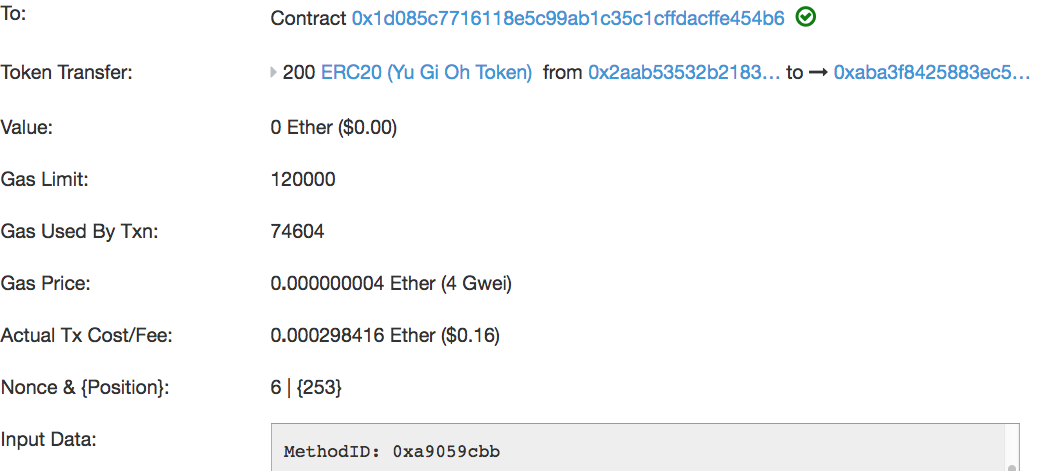I'm connected to an Ethereum node (running Geth) I manage and I'm able to connect to it using RPC. I can access web3 in the terminal after issuing geth console. I can access and run the RPC function calls as listed in the documentation here. I have to switch between different libraries like webpy and web3.js so an implementation in either should be fine.
Given a transaction hash, I can fetch the transaction details, say using web3.eth.getTransaction(transaction_hash). But all the details I get only includes: hash, input, nonce, from, to, transaction_index, value, v, r, s.
What I'm curious about is how does this website access rest of the rich details as to how many tokens were transferred. More specifically, how can we read (given the sender and contract address involved in a transactions) the value of tokens transferred i.e. the value parameter of the function call?
A snapshot of such details from the above website. (How does one figure out the Token Transfer, shown in the picture below)
Is it from the input field? If so, how does one interpret the hex to actuall values and the function called?

